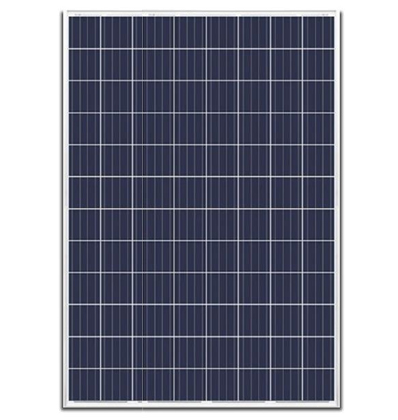Panasonic Solar Panels India
POLYCRYSTALLINE TECHNOLOGY
Solar panel technology has evolved significantly, driven by the demand for clean, renewable energy. Here are the major types and advancements in solar panel technologies:
- Crystalline Silicon Solar Panels
These are the most widely used solar panels due to their efficiency and durability. They come in two main types:
- Monocrystalline Solar Panels: Made from single-crystal silicon, they offer high efficiency (15–25%) and perform well in low-light conditions.
- Polycrystalline Solar Panels: Made from multiple silicon fragments melted together, they are slightly less efficient (13–20%) but more affordable.
- Thin-Film Solar Panels
These panels are made by depositing thin layers of photovoltaic material on a substrate. Types include:
- Amorphous Silicon (a-Si): Flexible and lightweight, often used in small devices or portable applications.
- Cadmium Telluride (CdTe): Affordable and efficient but raises environmental concerns due to cadmium.
- Copper Indium Gallium Selenide (CIGS): Offers high efficiency and flexibility, but production costs remain high.
- Emerging Technologies
Innovative solar technologies are being developed to improve efficiency, versatility, and affordability:
- Perovskite Solar Cells: Highly efficient (over 30% in lab conditions), lightweight, and potentially low-cost. Challenges include stability and scalability.
- Organic Photovoltaics (OPV): Uses organic compounds for light absorption. They are flexible, lightweight, and semi-transparent but less efficient.
- Bifacial Solar Panels: Capture sunlight from both sides, increasing energy output by 10–20%.
- Building-Integrated Photovoltaics (BIPV): Solar panels integrated into building materials like windows, walls, and roofs.
- Concentrated Solar Power (CSP)
CSP systems use mirrors or lenses to focus sunlight onto a small area, producing heat to drive a turbine or engine for electricity. Types include:
- Parabolic Troughs
- Solar Towers
- Linear Fresnel Reflectors
- Advanced Materials and Designs
- Quantum Dot Solar Cells: Use nanotechnology for highly efficient light absorption.
- Tandem Solar Cells: Stack different types of cells to capture a broader spectrum of sunlight.
- Transparent Solar Panels: Designed for windows or screens, combining energy generation with functionality.
- Efficiency and Cost Trends
Solar panel efficiency has risen steadily, with some experimental technologies exceeding 40% efficiency under lab conditions. Manufacturing innovations and economies of scale are driving costs down, making solar power more accessible.
Applications
Solar panels are used in:
- Residential and commercial rooftops.
- Utility-scale solar farms.
- Portable chargers and off-grid systems.
• Electric vehicle charging stations

